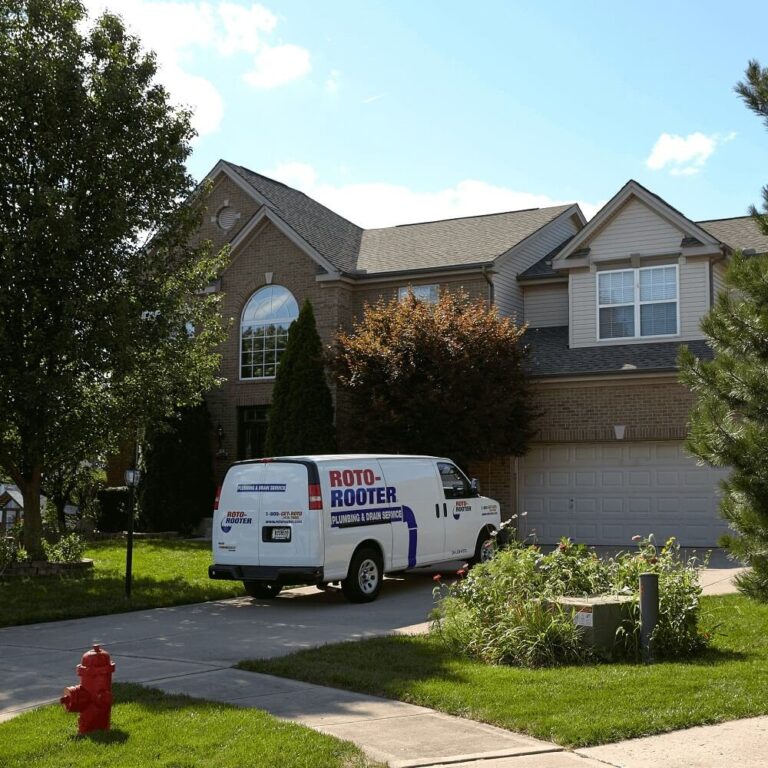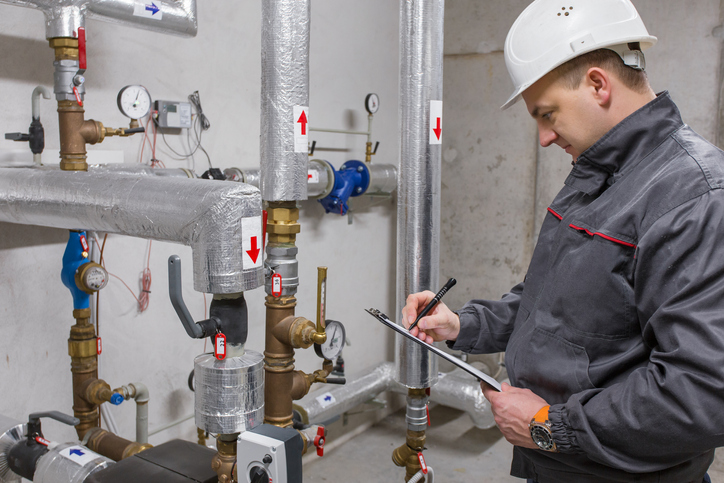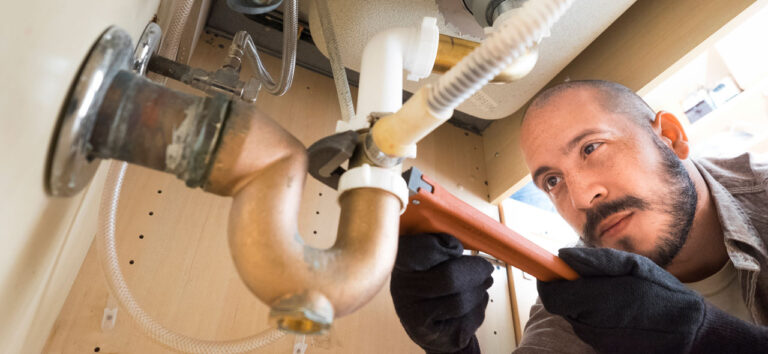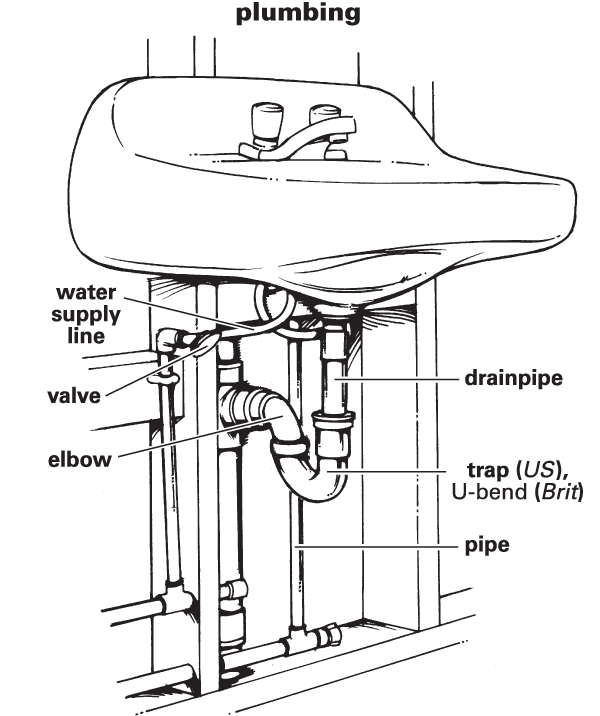Why Is It Called A Plumber?
A plumber is a tradesperson who specializes in installing and maintaining systems used for water, sewage, and drainage. The term “plumber” is derived from the Latin word plumbarius, which means “lead worker” – a reference to the lead pipes that were commonly used in plumbing systems during the Renaissance era. In addition to installing and maintaining pipes, plumbers also provide services such as repairing water heaters, installing fixtures, and performing maintenance checks. The profession of plumbing is highly regulated in many countries, and plumbers must be certified and licensed to practice their trade. Plumbers play an important role in keeping our homes and businesses safe and functioning properly.
Origins of the Term Plumber
The term “plumber” originates from the Latin word for lead, “plumbum.” Lead was commonly used in the past to make various fixtures and pipes. Early plumbers were responsible for the installation and maintenance of lead piping, and the term “plumber” has since come to refer to anyone who works with pipes and fixtures. Today, plumbers are responsible for a variety of tasks, including the installation, repair, and maintenance of plumbing systems. From diagnosing and repairing water leaks, to installing and maintaining water heaters, the modern plumber has many responsibilities. With the advancement of technology, plumbing systems have become more complex, and the work of plumbers has grown in complexity as well. The need for certified, reliable, and experienced professionals to work on plumbing systems is greater than ever. Plumbers are the backbone of our modern infrastructure, and their skills and expertise are essential for the proper functioning of our homes and businesses.
Plumbers in Ancient History
The ancient world has had a long and storied history with plumbing. From the aqueducts of Ancient Rome to the plumbing infrastructure of the Ottoman Empire, the engineering and craftsmanship of our ancestors have shaped the way we think about plumbing even today. From the mysterious and intricate underground systems of the Maya and Aztecs to the innovative and effective irrigation systems of the Sumerians, plumbing has had a major impact on civilization since its earliest days. Plumbers in Ancient History were skilled craftsman, building complex systems to provide clean water, sanitation, and other essential utilities. While techniques have improved over time, the basics of plumbing remain the same: a system of pipes, valves, and fixtures to move and manage water. With this blog series, we’ll take a look at the incredible plumbing feats of our ancestors and the lasting impact they’ve had on civilization.
The Role of Plumbers in Modern Times
Plumbers play an essential role in modern day life, providing vital services such as installing and maintaining water systems, appliances, and fixtures, as well as providing repairs and maintenance services. Plumbers are highly skilled and knowledgeable professionals who can tackle virtually any plumbing issue, from a simple leaky faucet to a complex installation of a new water heater or filtration system. By using the latest tools and techniques, plumbers can ensure that your home or business is running safely and efficiently. In addition to their technical expertise, plumbers also provide a valuable service in keeping the environment safe and healthy. By ensuring that plumbing systems are properly installed and maintained, plumbers can help protect the environment from water contamination and other pollutants. In short, plumbers are an indispensable part of modern life, and their invaluable services ensure that homes and businesses are safe, healthy, and functioning properly.

The Tools of the Plumber’s Trade
The plumber’s trade is an essential profession, requiring both specialized knowledge and the right tools to get the job done. From leaky pipes to clogged drains, plumbers are responsible for keeping our homes and businesses running at peak efficiency. The tools of the plumber’s trade are a variety of specialized tools, from wrenches and plungers to more advanced tools like pipe cutters and heat guns. Each tool is designed to help the plumber tackle whatever plumbing issue they may encounter. From removing clogs to repairing broken pipes, the plumber’s tools are essential for a successful job. With the right selection of tools, a plumber can tackle any job with confidence. So the next time you need plumbing work done, make sure you hire a professional plumber with the right tools of the trade!
The Training and Education Required for Plumbers
Plumbers provide an essential service to homeowners and businesses, ensuring the safe and effective operation of plumbing systems. To become a qualified plumber, it is necessary to complete a combination of training and education. This typically involves completing an apprenticeship with a licensed journeyman plumber and earning a certification from a recognized trade school. The apprenticeship will involve both classroom and on-the-job training, providing a comprehensive understanding of the plumbing trade. Once certified, plumbers must complete continuing education courses and keep their certifications up to date, ensuring that their skills remain current and that they remain compliant with local and national plumbing codes. With the right training and education, plumbers can provide valuable services and help keep both homes and businesses running smoothly.
Safety Considerations for Plumbers
Plumbing is an essential part of any residential or commercial building, and as such, it must be done safely and correctly. Plumbers must consider the safety implications of their work when dealing with gas and water pipes, ensuring any connections are properly sealed and that all pipes are installed correctly. Additionally, plumbers should take into consideration any hazardous materials they may be working with and make sure to wear the appropriate protective gear. Furthermore, they should ensure all tools and equipment are in good working order and that the work environment is safe. Plumbers should also be mindful of any potential health risks associated with their work, such as exposure to dust and chemical fumes, and should take the necessary precautions to protect themselves. By following these safety considerations, plumbers can help to ensure a safe and successful job.
FAQs About the Why Is It Called A Plumber?
1. What is the origin of the name “plumber”?
The term “plumber” is derived from the Latin word “plumbum”, which means “lead”. This is because the early plumbers used lead pipes to construct water systems.
2. How did the profession of plumber develop?
The profession of plumber has been around for centuries, with the first recorded plumbers dating back to ancient Rome. Throughout the years, the profession has evolved to include the installation and repair of water systems, gas lines, and other plumbing systems.
3. What are the qualifications of a plumber?
In order to become a plumber, you must be trained and certified in plumbing. This typically involves completing an apprenticeship program and passing a certification exam.
Conclusion
In conclusion, the term “plumber” is derived from the Latin word “plumbum,” meaning lead, which was the material used for the pipes and fixtures of ancient plumbing systems. The term was then adopted to refer to the people who installed and repaired these systems. Today, plumbers are responsible for the installation and repair of a wide variety of plumbing systems, from water and sewer lines to gas lines and water heaters.







